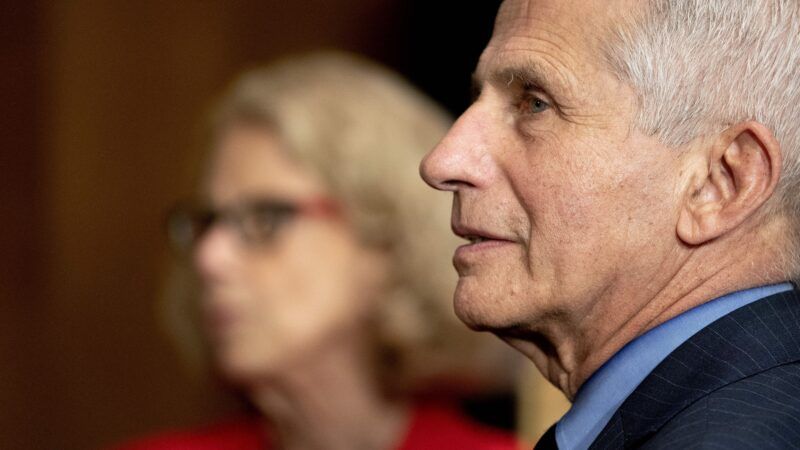Anthony Fauci Says His Critics Are Attacking Science Itself
"A lot of what you're seeing as attacks on me quite frankly are attacks on science."

In an interview with MNSBC host Chuck Todd on Wednesday, White House coronavirus advisor Anthony Fauci fired back at his detractors—explicitly suggesting that the recent criticism he has received from Republicans constitutes an attack on science itself.
"If you are trying to get at me as a public health official and a scientist, you're really attacking not only Dr. Anthony Fauci, you're attacking science," said Fauci, speaking in the third person. "Anybody who looks at what's going on clearly sees that. You'd have to be asleep not to see that. That's what's going on. Science and the truth are being attacked."
This statement was prompted by a question from Todd, who fretted that conservative critiques of Fauci were undermining the credibility of public health officials and could cause vaccine hesitancy. "Look at Russia," said Todd. "They have a good vaccine and none of their citizens will take it because they don't trust their own government."
FAUCI: "If you are trying to get at me as a public health official and a scientist, you're really attacking not only Dr. Anthony Fauci, you are attacking science." pic.twitter.com/MwZSv2nxbL
— Townhall.com (@townhallcom) June 9, 2021
Russia's government is authoritarian: President Vladimir Putin jails dissidents and has his opponents murdered. Citizens may not have good reason to distrust the Russian vaccine, but they have every reason not to trust their government.
This is true as well for American citizens: A healthy distrust of government should be considered a prerequisite for a free society. But more specifically, federal health bureaucrats' handling of the pandemic has created legitimate cause for distrust, for skepticism, and for criticism. While the latest guidelines from the Centers for Disease Control and Prevention correctly permit vaccinated individuals to resume wide swaths of pre-pandemic behavior, the CDC previously sounded notes of extreme and excess caution, inadvertently creating the false impression that the vaccines are not very protective from COVID-19. (In reality, they are miraculously effective.) The federal government has also failed to make the AstraZeneca vaccine available, even though we already know it is safe and effective.
Government health officials should not be immune from criticism simply because they are doctors or scientists. Fauci works for the government and should be subject to the same scrutiny that journalists are supposed to apply to all members of government. What's more, we know that Fauci has said things that are not true: he has admitted that he kept the truth about the proper herd immunity threshold from the public; he has admitted that he failed to recommend masking during the early days of the pandemic because he was worried that hospitals would run out of them.
"Science" is not synonymous with Fauci, or the CDC, or any lone source of authority. Scientific experts routinely disagree on various policies. Some epidemiologists continue to urge the public to practice a level of caution that seems unnecessary in light of the vaccines, while others think life can resume as normal. There are legitimate differences of opinion on which pandemic mitigation strategies—lockdowns, school closures, mask mandates—actually worked. Being pro-science does not mean parroting the talking points of the government's chosen spokesperson. Robust debate and challenge are part of the scientific process.
That's precisely what is happening now: Some people are asking questions about the government's handling of the pandemic. Not all of these questions are good ones, and not everything Fauci has done or said was wrong. But asking questions is not a crime against science: It's a vital aspect of democracy and a fundamental step in the scientific process.


Show Comments (209)